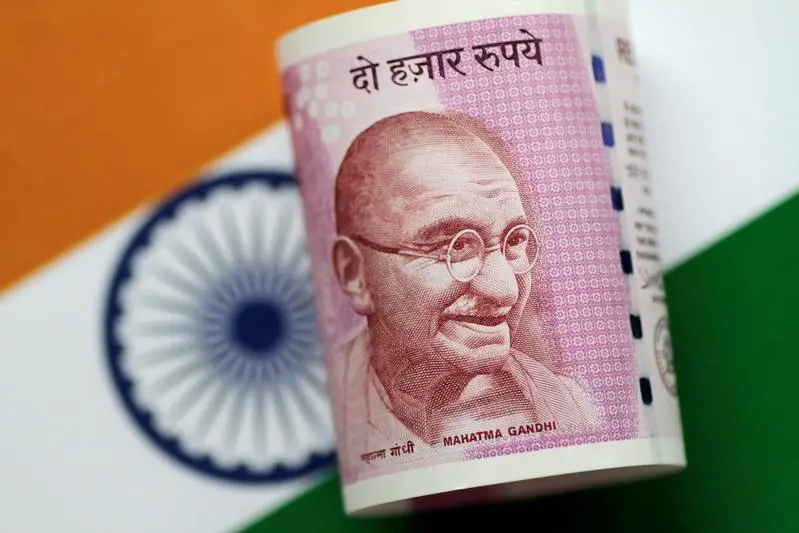PHOTO
MUMBAI - The Indian rupee posted its biggest monthly drop since the onset of the pandemic in the country in March last year, pressured by high global crude oil prices and concerns over the U.S. Federal Reserve hinting at unwinding its massive stimulus.
Traders said month-end demand for dollars from oil importers was one of the main factors driving the unit lower, while weak local equities also hurt sentiment.
The partially convertible rupee ended at 74.3250/3350 per dollar, from 74.22 on Tuesday. The rupee dropped 2.4% in June, its biggest fall since last March when it fell 4.6%.
Over the quarter, the unit lost 1.7%, its worst quarterly fall since January-March 2020 when it tumbled 5.8%.
"Brent crude is at its highest level in two years and is the key risk for the rupee... A move above $80 per barrel could stoke concerns over inflation and current account deficit," IFA Global Research said in a note.
Brent crude was trading up 0.7% at $75.28 a barrel by 1025 GMT and is set to record its seventh monthly gain in eight.
India imports over two-thirds of its oil requirements and rising oil prices could add to inflationary concerns and further complicate policy making for the central bank which has vowed to keeping monetary policy accommodative to support the pandemic-hit economy.
"We expect Indian markets to be partly de-risked owing to the high foreign reserves stock as well as improved adequacy, just as the discussion on timing of the U.S. taper tantrums gains traction," DBS Bank economists said in a note.
The rupee, however, has seen a depreciating bias in recent weeks, after the Fed sounded more hawkish than anticipated earlier this month.
The U.S. dollar was seen heading for its biggest monthly rise since March supported by traders' trepidation ahead of unpredictable U.S. labour data and concern over the spread of the Delta coronavirus variant.
India's $600 billion in reserves should help it fight market volatility from any U.S. monetary tightening, but analysts warn a slowing economy and an expanding fiscal deficit still make it particularly vulnerable to capital flight.
(Reporting by Swati Bhat; Editing by Rashmi Aich) ((swati.bhat@thomsonreuters.com; twitter.com/swatibhat22; +91-22-68414381; Reuters Messaging: swati.bhat.thomsonreuters.com@reuters.net))





















